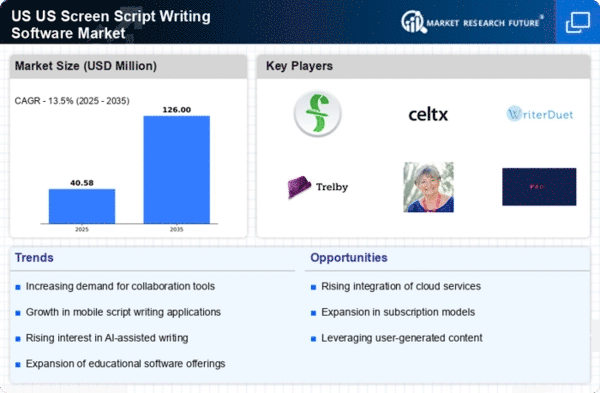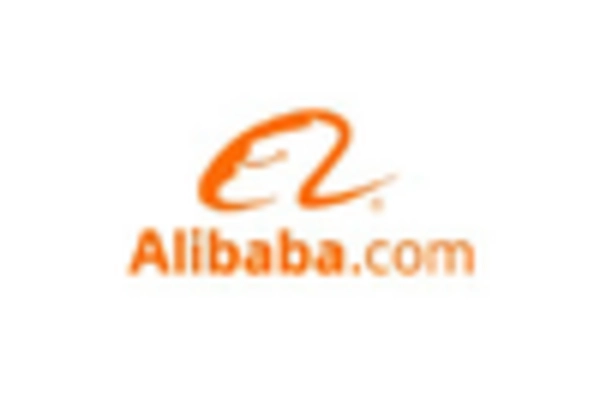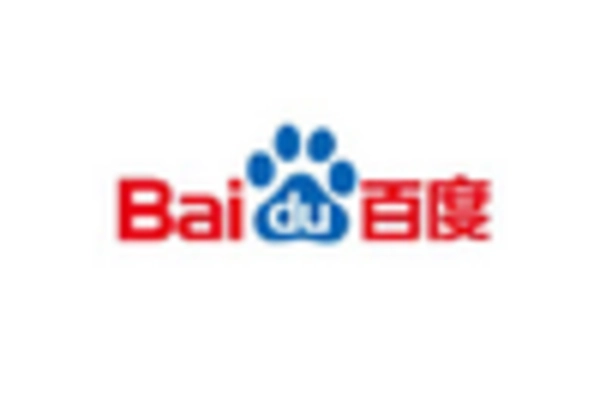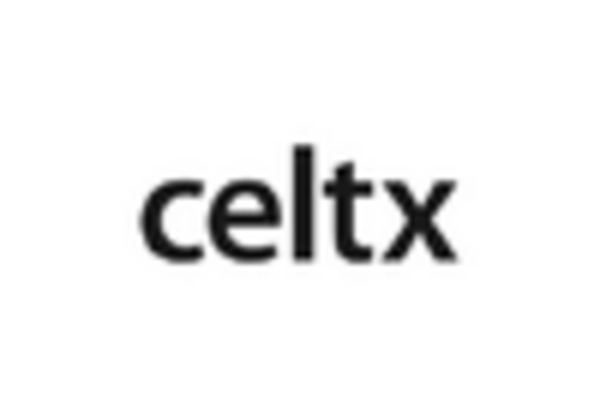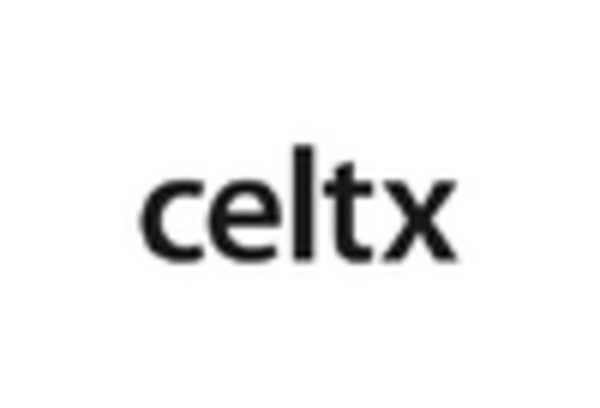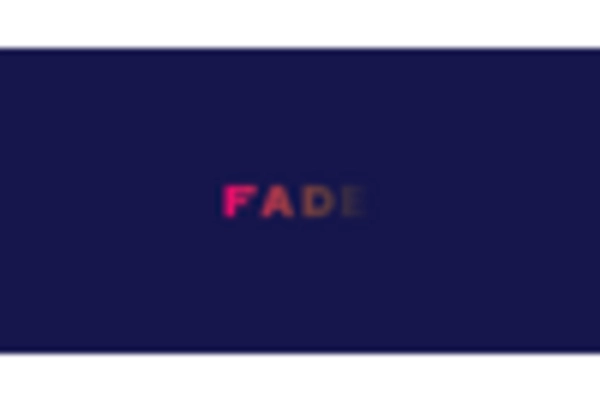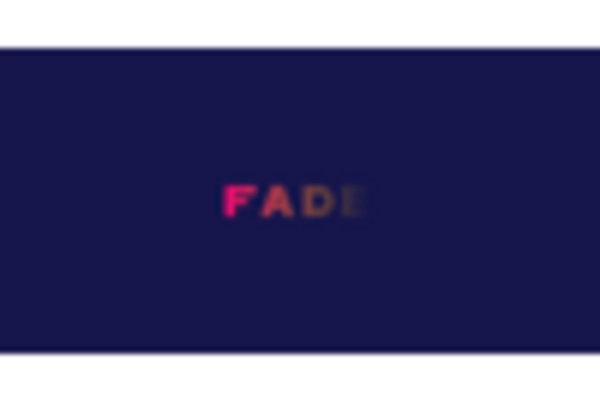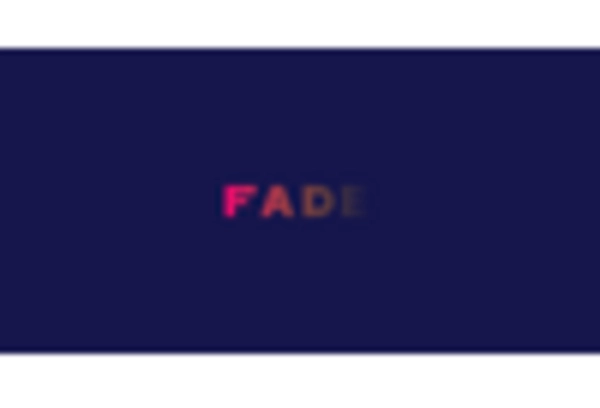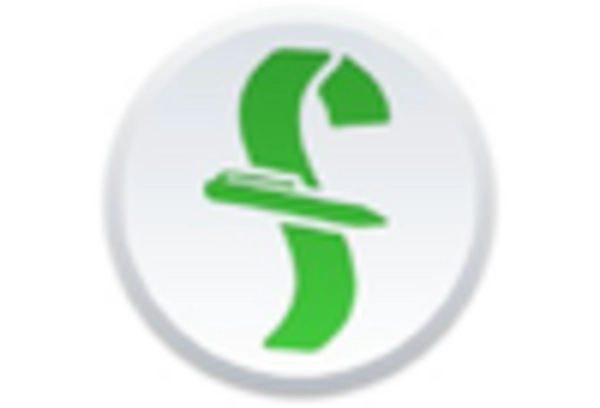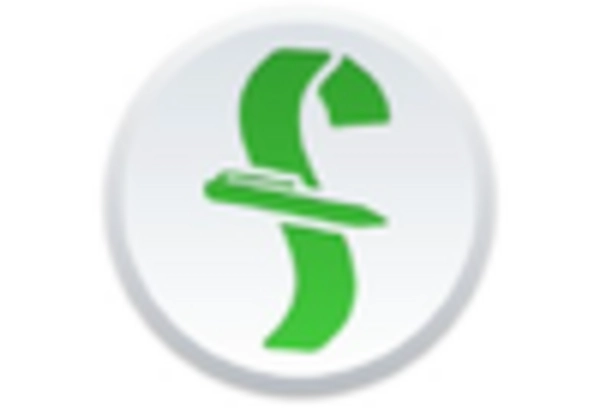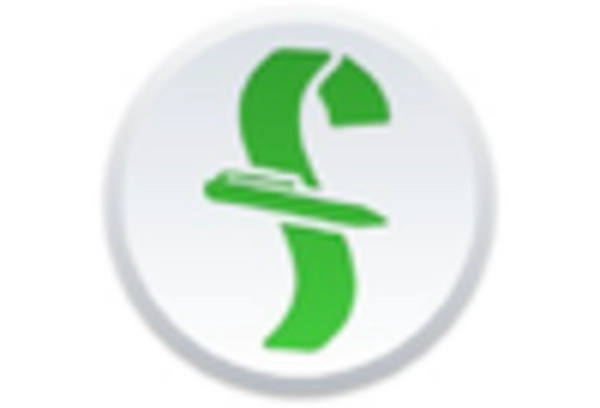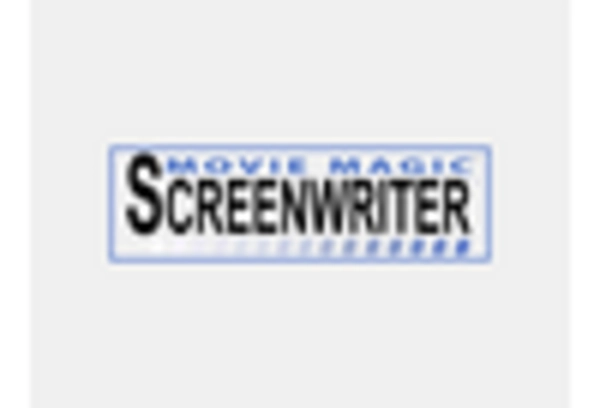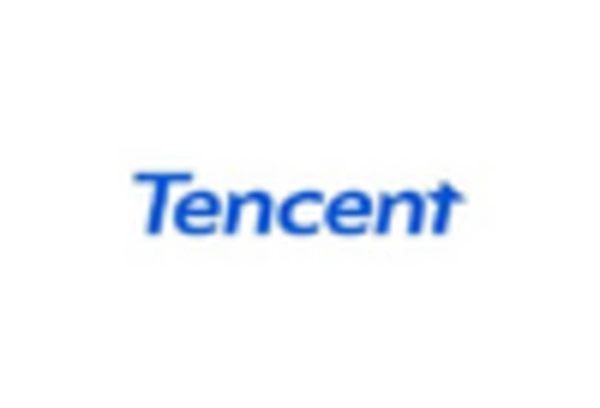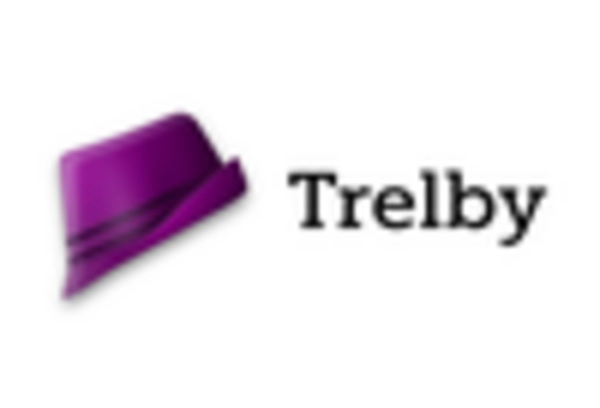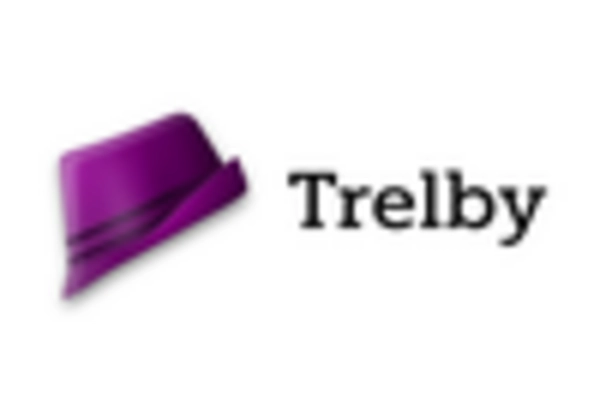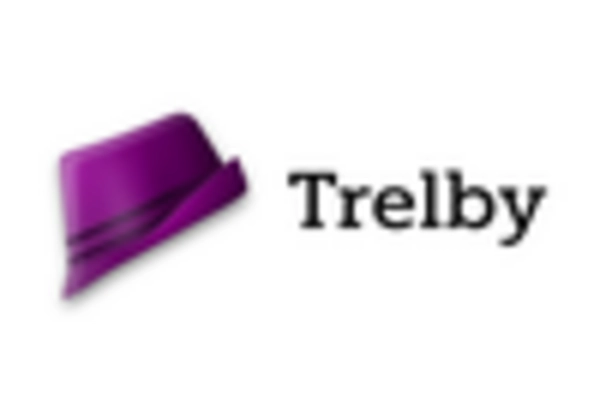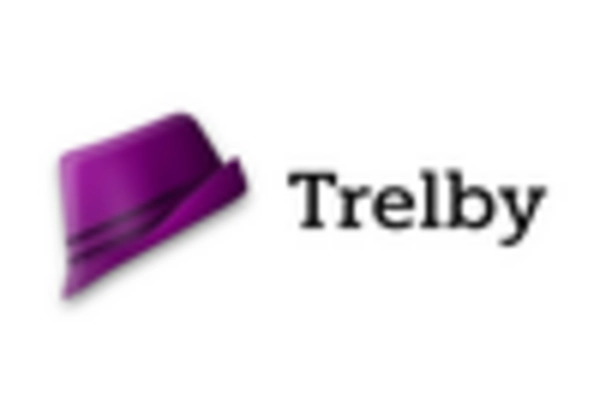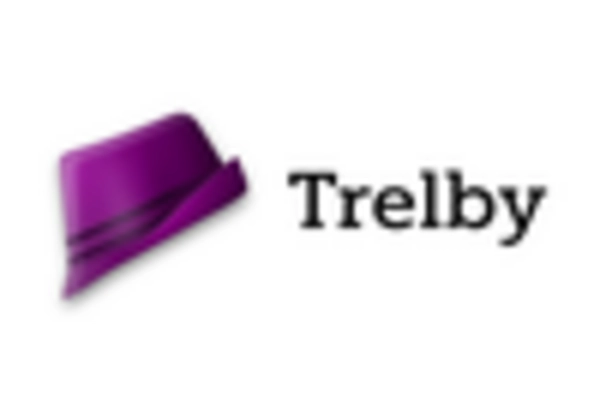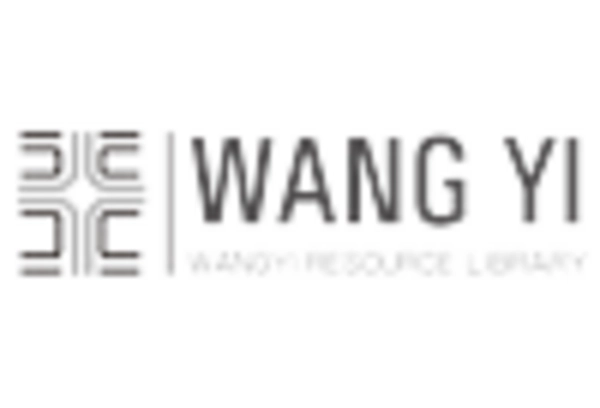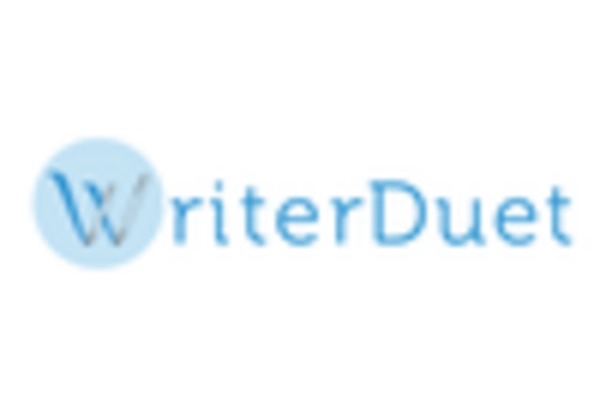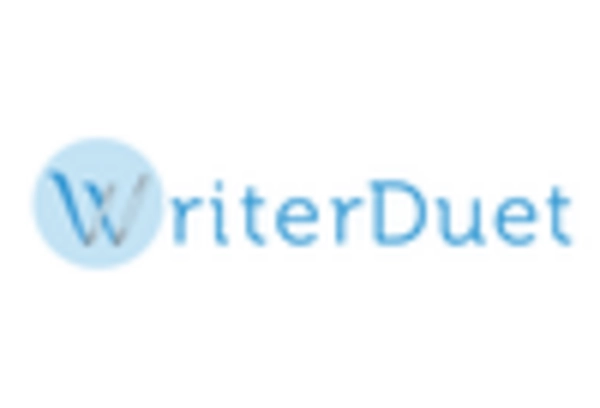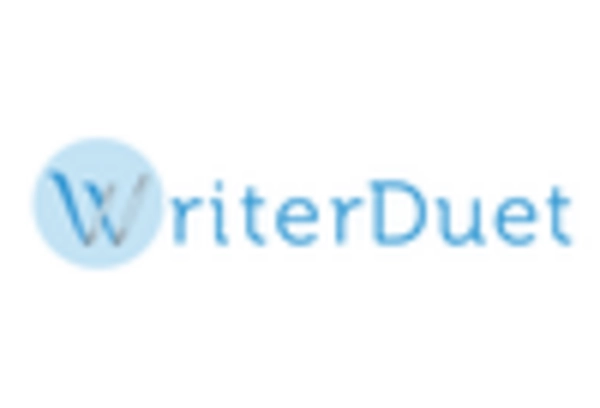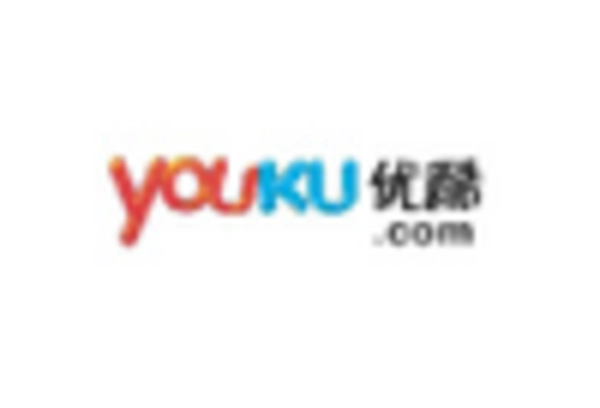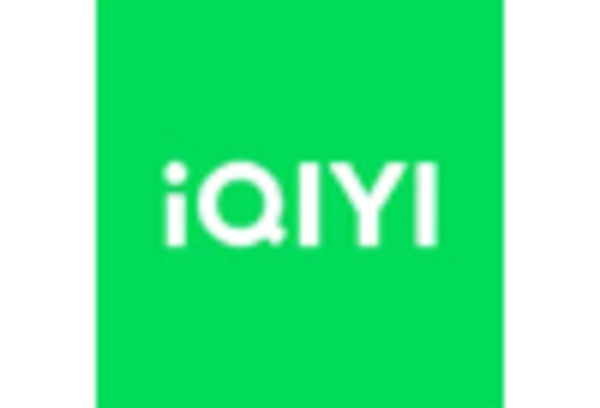Rising Demand for Content Creation
The US Screen And Script Writing Software Market experiences a notable surge in demand for content creation across various platforms. With the proliferation of streaming services and digital media, the need for high-quality scripts has escalated. In 2025, the US film and television industry generated over 200 billion USD, indicating a robust market for scriptwriting tools. This growth is likely to continue as more creators seek innovative software solutions to enhance their storytelling capabilities. The increasing number of independent filmmakers and content creators further fuels this demand, as they require accessible and efficient tools to bring their visions to life. Consequently, the US Screen And Script Writing Software Market is poised for expansion, driven by the insatiable appetite for diverse and engaging content.
Emergence of Online Learning Platforms
The emergence of online learning platforms significantly influences the US Screen And Script Writing Software Market. As aspiring writers seek to hone their skills, many turn to digital courses and workshops that often recommend specific software tools for scriptwriting. In 2025, it is estimated that over 40% of new writers utilize online resources to learn the craft, creating a steady demand for user-friendly writing software. This trend not only fosters a new generation of writers but also encourages software developers to tailor their products to meet the needs of learners. Consequently, the US Screen And Script Writing Software Market is likely to expand as educational institutions and independent educators promote the use of specialized software in their curricula.
Technological Advancements in Software
Technological advancements play a pivotal role in shaping the US Screen And Script Writing Software Market. The integration of cloud-based solutions and artificial intelligence has revolutionized scriptwriting processes, making them more efficient and user-friendly. For instance, AI-driven tools can analyze scripts for pacing, character development, and dialogue, providing valuable feedback to writers. As of 2025, approximately 60% of scriptwriters utilize software that incorporates these advanced technologies, reflecting a significant shift in industry practices. This trend suggests that the US Screen And Script Writing Software Market will continue to evolve, with developers focusing on enhancing user experience and functionality. The ongoing innovation in software capabilities is likely to attract new users and retain existing ones, thereby contributing to market growth.
Growing Popularity of Independent Filmmaking
The growing popularity of independent filmmaking has a profound impact on the US Screen And Script Writing Software Market. As more individuals pursue their creative aspirations outside traditional studio systems, the demand for accessible and affordable scriptwriting tools increases. In 2025, independent films accounted for nearly 25% of total film releases in the US, highlighting the vibrant landscape of independent cinema. This shift encourages software developers to create products that cater specifically to the needs of independent creators, who often require flexible and cost-effective solutions. The US Screen And Script Writing Software Market is thus likely to thrive, as it adapts to the evolving preferences of a diverse and dynamic user base.
Increased Investment in Film and Television Production
The US Screen And Script Writing Software Market benefits from increased investment in film and television production. In recent years, the US has witnessed a substantial rise in funding for creative projects, with total production spending reaching approximately 100 billion USD in 2025. This influx of capital encourages writers and producers to invest in high-quality scriptwriting software, as they seek to maximize the potential of their projects. Furthermore, the growing trend of co-productions and collaborations among studios amplifies the need for effective communication and script development tools. As a result, the US Screen And Script Writing Software Market is likely to see sustained growth, driven by the financial backing of diverse projects and the demand for professional-grade writing solutions.


